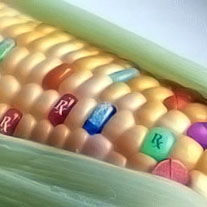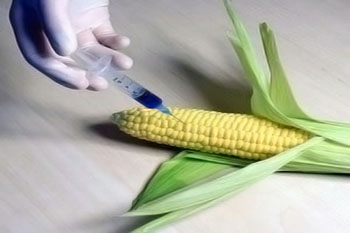Genetically modified food (GM food) in Serbia, is that possible awful reality?

Ministry of Agriculture, Forestry and Water Management has committed to as soon as we bring a new Law on Genetically Modified Organisms (GMOs), following the intervention carried out by officials of the United States, the European Union and some other member of the World Trade Organization (WTO), according to in a document posted on the website of the Ministry of Agriculture. World Trade Organization (WTO).
U.S. authorities have expressed dissatisfaction and concern about the new Serbian law, which came into force in June this year, and that Serbia completely prohibits production and marketing of genetically modified organisms (GMOs) for commercial purposes. According to this document, Serbian officials are now aware that the law was passed in June can be a serious obstacle to the admission of our country into the World Trade Organization, and because the promise came from Belgrade that the only approved document will be changed, and perhaps for the autumn session of the Assembly Serbia.
Otherwise, genetically modified food in the EU, according to local regulations, must be clearly marked, which in America is not the case, because in that country allowed its traffic. Serbia has banned production and sale of GMO plants and seeds for commercial purposes, but under a special permit, which provides new law, can be used for experimental purposes.
The Ministry of Agriculture, Forestry and Water Management have not been confirmed, nor denied knowledge today, with the explanation that it was a “bilateral relation between the two countries.”
– The law is quite clear – it prohibits the use of genetically modified food for commercial purposes, and for now will be the – explicit the deputy minister of Agriculture for agricultural policy Milos Milovanovic.
He added that currently preparing new legislation on GMOs, but notes that “every law living matter, which is constantly changing and editing”. Milovanovic said that very often the essence of the law, particularly relating to agriculture, lies in the bylaws, which in the case of the genetically modified organisms, has yet to be made. Under the GMO means those organisms whose genetic composition changed in a way that would never occur in nature, classical breeding.

As very few in the area of science, genetic engineering raises a number of controversies. Starting with those moral, scientific and claiming that the field is related to genes at least explored in medicine and can not be said with certainty that genetically engineered organisms, which have undergone testing and have shown the desired results, it will not mutate in the future and lead to unforeseen consequences. It is not new to the results of experiments are completely opposite than expected. Also, it is suspected that GM foods can be for some people to be toxic or cause allergies.
On the other hand, advocates the use of GMOs argue that if their commercialization solve the problem of hunger in the world. Genes obtained by crossing to the culture resistant to diseases, insects and weeds, which would be more tolerant to weather conditions and type of soil and yields would be higher and better.
Serbia has banned production and sale of GMO plants and seeds for commercial purposes, but under a special permit, which provides new law can be used for experimental purposes.
– In our laboratories in addition to many other plant species, mostly working on transgenic tobacco, which is a good model system because it is very easy to regenerate. Intercept from a small plant, part of the list or tree growth on specific substrates, which contain plant hormones, you can get a whole new plant. This process is called micropropagation, where the small intercept obtained a large number of identical individuals. This is convenient cloning of plants, which is nothing spectacular compared to the cloning of animal tissues. In the Netherlands, Italy, for example, there are commercial laboratories that produce flowers that way. The process is cost effective because it significantly faster compared to natural reproduction, so that the production of more – told Today Joan Milos Djukic, Institute of Molecular Genetics and Genetic Engineering, which is a member of the National Council for Biological Safety.
She added that here was no attempt to micropropagation introduce to the market, that is, in this way produce plants for urban greenery, but that did not work, because in Serbia there is no connection between production, on one side and science on the other hand .
– To private entities is easier to import from the Netherlands a large number of plants, but here invest funds to develop technology for their production – said Milos Djukic. It adds to the negative facts that would substantiate the fear that the use of GMOs dangerous, there has not occurred and that any company wishing to launch a new GMO product, before it has to do extensive research in the laboratory and field.




